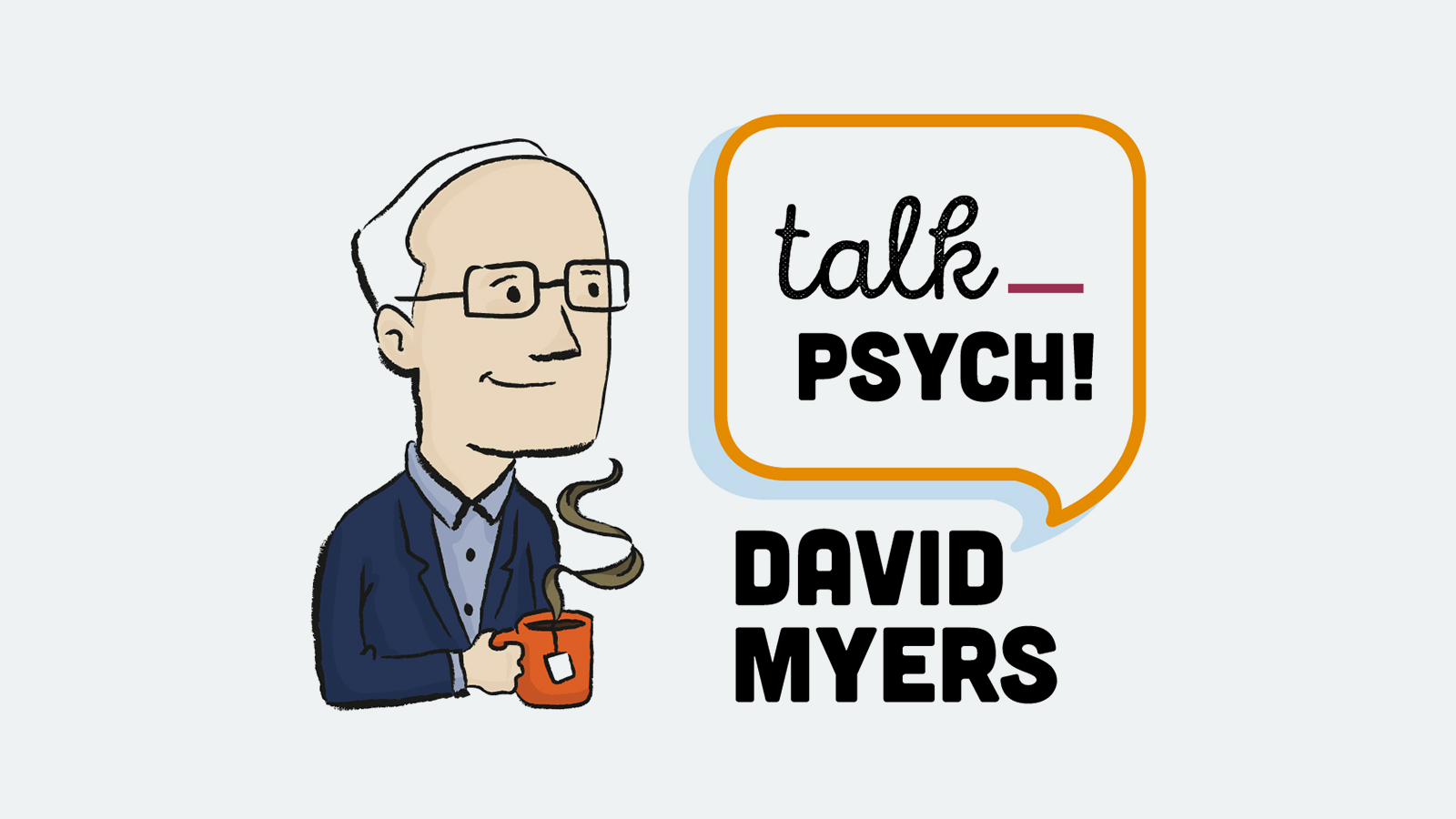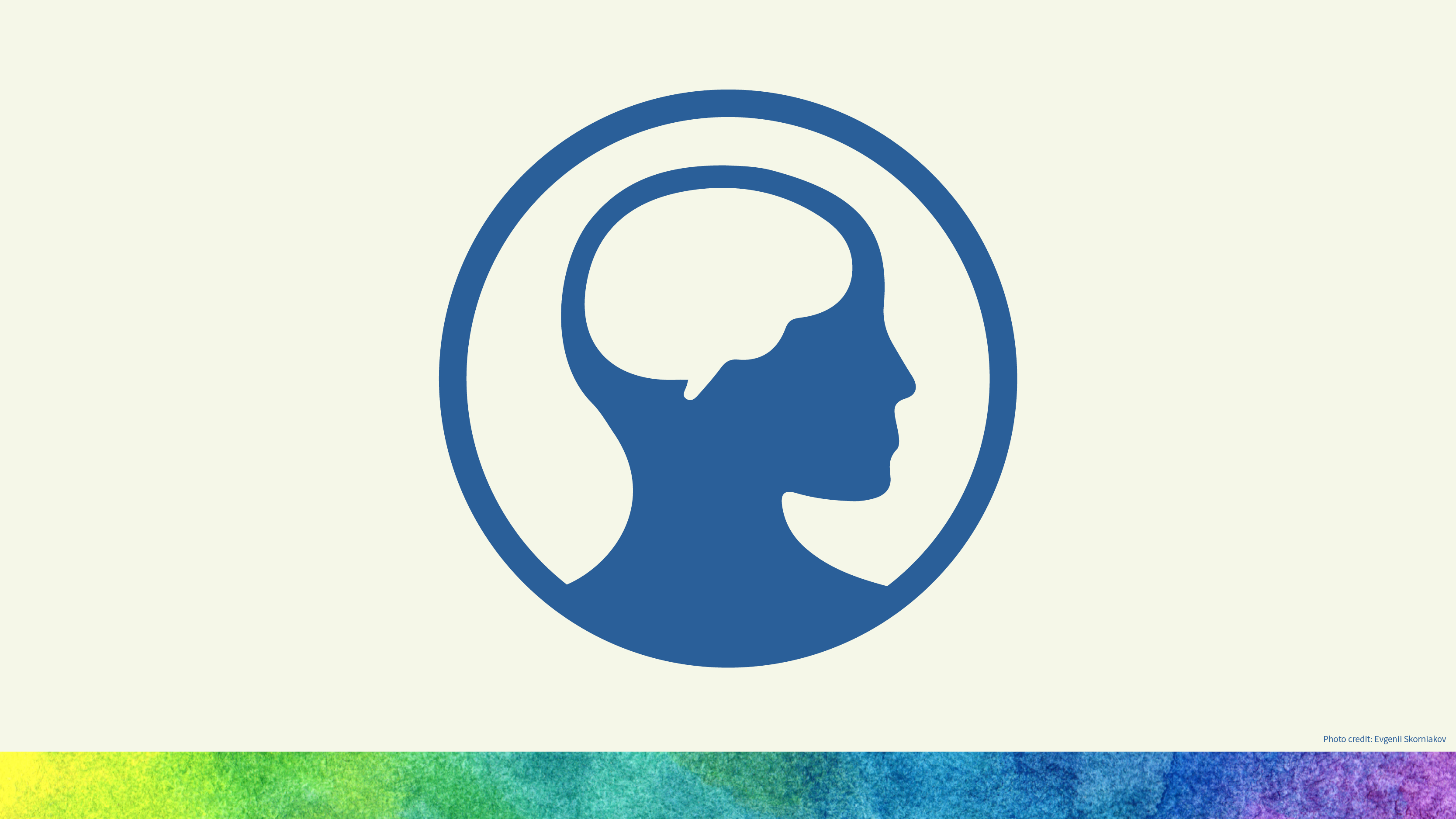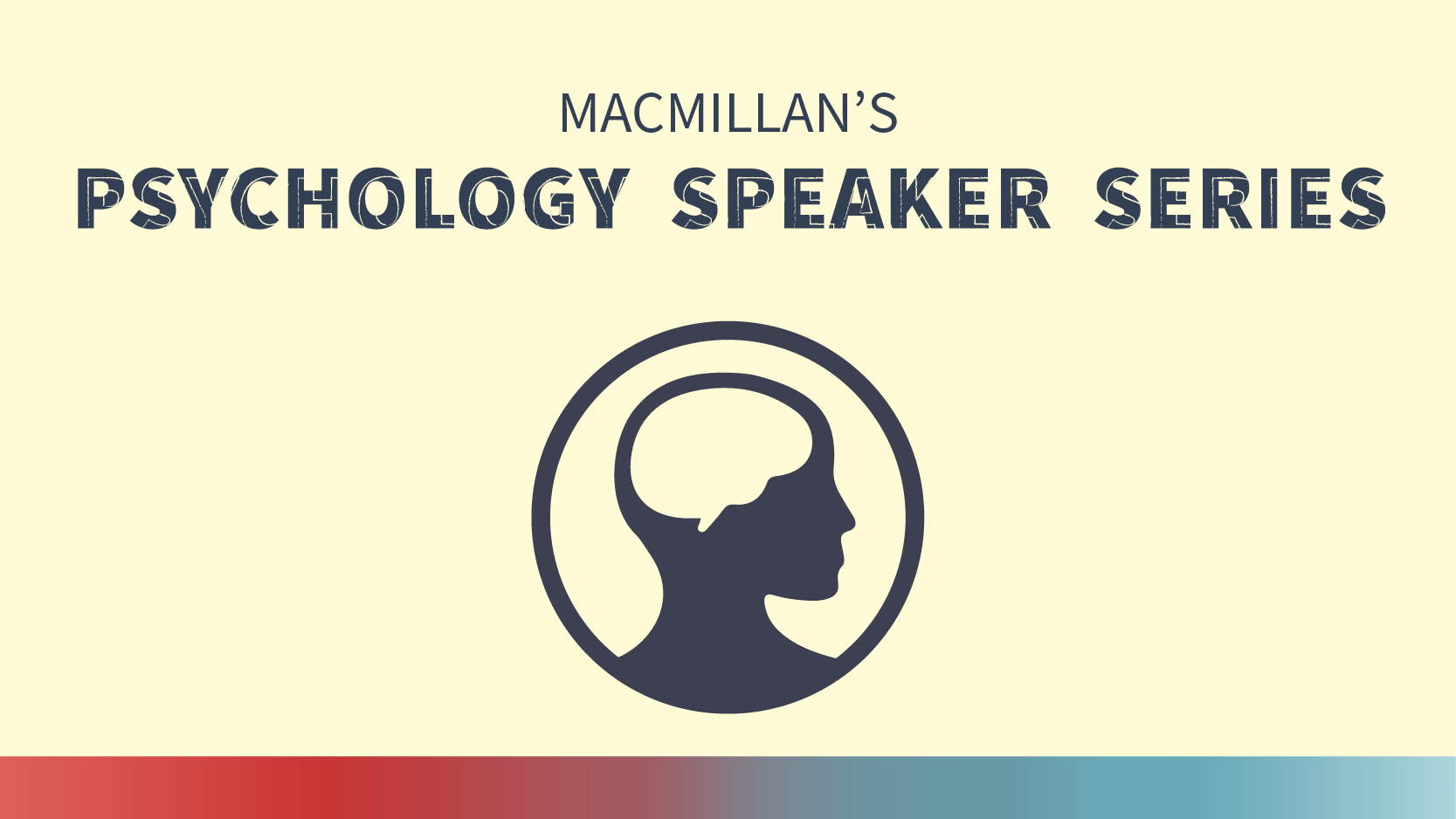-
About
Our Story
back- Our Mission
- Our Leadershio
- Accessibility
- Careers
- Diversity, Equity, Inclusion
- Learning Science
- Sustainability
Our Solutions
back
-
Community
Community
back- Newsroom
- Discussions
- Webinars on Demand
- Digital Community
- The Institute at Macmillan Learning
- English Community
- Psychology Community
- History Community
- Communication Community
- College Success Community
- Economics Community
- Institutional Solutions Community
- Nutrition Community
- Lab Solutions Community
- STEM Community
- Newsroom
- Macmillan Community
- :
- Psychology Community
- :
- Psychology Blog
- :
- Psychology Blog - Page 37
Psychology Blog - Page 37
Options
- Mark all as New
- Mark all as Read
- Float this item to the top
- Subscribe
- Bookmark
- Subscribe to RSS Feed
Psychology Blog - Page 37
Author
07-18-2016
01:14 PM
Originally posted on May 1, 2015. One of the striking discoveries of psychological science is the malleability of memory, as illustrated by the “misinformation effect.” Experiments by Elizabeth Loftus and others exposed participants to false information. Afterwards, they misremembered a stop sign as a yield sign, a screw driver as a hammer, a peanut can as a Coke can, and a clean-shaven man as having a mustache. Even just imagining nonexistent happenings can create false memories—of being sickened by rotten eggs, having one’s finger caught in a mousetrap, of encountering Bugs Bunny (a Warner character) at Disneyland, or even of preschool child abuse. For me the most stunning finding is the most recent. After collecting background information from university students’ parents, researchers Julie Shaw and Stephen Porter prompted the students to recall two events from their past—one a false early adolescent event, embedded in true details of the students’ life, such as the name of a friend. For some, this nonexistent event involved committing a crime, such as a theft, assault, or even assault with a weapon. After three interviews, 70 percent of students reported false (and usually detailed) memories of having committed a crime. The bottom line: Our memories are not just replays of our past experiences. Rather, we actively construct our memories at the time of recall. And that fact of life has implications for criminal interrogation, eyewitness recollections, and even memories retrieved during psychotherapy.
... View more
Labels
0
0
1,625
Author
07-18-2016
01:09 PM
Originally posted on May 7, 2015. Despite concerns that video game-playing teaches social scripts for violence, recent research also suggests a cognitive benefit: sharpened visual attention, quickened reaction speed, and improved spatial abilities, such as eye-hand coordination. Experienced game players tend to be perceptually quick and astute. But a just-released pair of studies, by University of Oregon researcher Nash Unsworth and five collaborators, casts doubt on claims that video game-playing enhances cognitive abilities. The new studies confirmed a cognitive benefit when comparing extreme video-game players with nonplayers. But across broader and larger samples of people, game-playing correlated near zero with various cognitive abilities. “Overall, the current results suggest weak to nonexistent relations between video-game experience—across a variety of different games—and fundamental cognitive abilities (working memory, fluid intelligence, attention control, and speed of processing).” Two of the study’s co-authors, Zachary Hambrick and Randall Engle, have also published studies and research reviews that question the popular idea that brain-training games enhance older adults’ intelligence and memory. Despite the claims of companies marketing brain exercises, brain training appears to produce gains only on the trained tasks (without generalizing to other tasks). Moreover, though we might wish that thousands of hours of practice could transform us into superstar athletes or musicians, Hambrick’s other research shows that superstar achievers are distinguished at least as much by their extraordinary natural talent as by their self-disciplined daily routine. The opposite of a truth is sometimes a complementary truth. Educational interventions that aim to enhance grit, or that promote a “growth mindset” (rather than fatalistically seeing intelligence as fixed), also boost achievement. And in yet another new study, British children who display self-control become, as adults, less vulnerable to unemployment. So, video-game and brain training exercises appear to have limited cognitive benefits. Natural talent matters. Yet the disciplined ability to delay gratification and to sustain effort also matters. “If you want to look good in front of thousands,” goes a saying attributed to Damian Lillard, “you have to outwork thousands in front of nobody.” Hero Images/ Getty Images
... View more
Labels
0
1
1,680
Author
07-18-2016
01:04 PM
Originally posted on May 28, 2015. Some studies put a smile on my face, as happened when reading a new meta-analysis of tea drinking’s association with lower risk of depression. As a tea-drinking happy person, I was pleased that eleven studies of 22,817 people reveal that regular tea drinking predicts a 31 percent decreased depression risk. There is also a dose-response relationship: the more tea people drink, the less their depression risk. The analysis was done by researchers in China (where I enjoyed tea at every meal in a recent visit to Beijing). And with the exception of two Finnish studies, all the research was conducted in tea-drinking Asia (China, Japan, Taiwan, and Singapore). Although the finding is correlational, the Hauzhong University researchers did find the association for both green and other teas, and also when controlling for diet, exercise, alcohol, and smoking. Thus, they conclude, “tea consumption may act as an independent protective factor for depression. Given that tea is widely consumed, has few documented adverse effects, and is relatively inexpensive, its potential in treating and preventing depression should be recognized.” Time for my afternoon cuppa...
... View more
Labels
1
0
1,149
Author
07-18-2016
12:56 PM
Originally posted on June 4, 2015. One curiosity of recent psychological science is what I’ve called the “religious engagement paradox”: The association between religious engagement and human flourishing is negative across places and positive across individuals. For example, in the most religious U.S. states people die sooner, commit more crime, divorce more, smoke more, and report lower emotional well-being than in the least religious states. Yet more religiously engaged individuals live longer, commit less crime, divorce less, smoke less, and are happier. (Don’t believe it? See here.) Princeton economist Angus Deaton and psychologist Arthur Stone (2013) share my puzzlement (here😞 “Why might there be this sharp contradiction between religious people being happy and healthy, and religious places being anything but?” (One possible answer, as Ed Diener, Louis Tay, and I suggested, lies in the more impoverished life circumstances of people in highly religious countries and states.) As I noted earlier, there also is a parallel “wealth and politics paradox”: In the U.S., low income states and high income individuals more often vote Republican: Now we have a report of yet another paradox: In Europe, “More liberal countries and more conservative individuals have higher levels of SWB [subjective well-being].” And another: People in highly religious states do more Google searches for sexually explicit content such as “gay sex,” as I was able to replicate using Google archives. So I couldn’t resist asking the lead researcher, Cara MacInnis at the University of Toronto, if it might nevertheless also be true that more religious individuals do less online searching for sexual content. Stay tuned, but MacInnis tells me that her latest data (paper forthcoming) do, indeed, seem to fit the religious engagement paradox pattern. The repeated lesson: how we ask the question (comparing aggregate or individual data) can sharply change the answer. So beware: partisans on both sides can pick their data to make their point.
... View more
0
0
1,120
Author
07-18-2016
12:40 PM
Originally posted on June 11, 2015. It won’t surprise you to learn that your perceived gender, inferred from your biological sex, may lead people to stereotype you as best suited for masculine- or feminine-typed occupations. People perceive women as more feminine—and as better suited to presumed feminine occupations such as librarian or caregiver. They perceive men as more masculine—and as a better fit for masculine occupations such as security patrol or firefighter. But might it surprise you—as it did me—to know that research teams led by Adam Galinsky and by Kerri Johnson have found that people also have gender stereotypes associated with race? As Erika Hall, Galinsky, and Katherine Phillips explain in the June Personality and Social Psychology Bulletin, “Asians are perceived as feminine and Blacks as masculine” (with Whites in between). In five studies, Hall and her colleagues found that people’s “gender profile”—based both on their sex and their race—influences others’ judgments of how well suited and hirable they are for masculine- or feminine-typed occupations. Asian women (denoted by names and checkboxes) were deemed best suited for a librarian position and least suited for a campus security patrol. And Black men were judged least suited for a librarian position and best suited for a security patrol. Whites were deemed in between. Simply said, the “gender of one’s race as well as one’s biological sex creates one’s gender profile.” And one’s sex + race gender profile predicts perceived “person-position fit.” Those conclusions, say the researchers, “shed light on how occupational gender and racial segregation persist.” Fanatic Studios/ Getty Images
... View more
Labels
0
0
1,765
Author
07-18-2016
12:37 PM
Originally posted on June 16, 2015. I was alerted, by this article in Nature, to a new report on sexual orientation from the Academy of Science of South Africa. The report is state of the art. It’s lucid and easily readable. It gets the important facts exactly right (methinks). And it speaks to pertinent issues in African countries, and also to controversies here in the USA. “Spread the word. Share the report and its findings,” opined Nature in a separate editorial. The full report, here, responds, for example, to the contention that condoning homosexuality increases it. It notes that, in African countries (in most of which same-sex relationships are illegal), “The prevalence . . . is no different from other countries in the rest of the world.” The report estimates, from the best worldwide data, “that between 350 million and 400 million people are not heterosexual. At least 50 million people who do not claim a heterosexual orientation live in African countries.”
... View more
Labels
0
0
1,899
Author
07-18-2016
12:35 PM
Originally posted on June 30, 2015. From the daily information stream that flows across my desk or up my computer screen, here is a recent new flashes: How marital support gets under the skin. A mountain of research shows that good marriages predict better health and longer life. But why? In a longitudinal study, Richard Slatcher and colleagues found that the perceived responsiveness of one’s partner predicted healthier stress hormone levels ten years later. “Our findings demonstrate that positive aspects of marriage—not only partner responsiveness but also provision of emotional support—may help shape the HPA axis in beneficial ways, potentially leading to long-term changes in cortisol production.” (The HPA axis is the hypothalamic–pituitary–adrenal network that controls our reactions to stress.)
... View more
Labels
0
0
1,320
Author
07-18-2016
12:31 PM
Originally posted on July 7, 2015. From the daily information stream that flows across my desk or up my computer screen, here is a recent news flash: Global data on mental illness. New global disease data published this week by The Lancet indicate the worldwide prevalence of schizophrenia (24 million people), anxiety disorders (266 million), major depressive disorder (253 million), and bipolar disorder (49 million). Major depressive disorder now trails only low back pain as a source of “years lived with disability.”
... View more
0
0
1,418
Author
07-18-2016
12:29 PM
Originally posted on July 14, 2015. From the daily information stream that flows across my desk or up my computer screen, here is a recent news flash: Global hearing loss. As an advocate for people with hearing loss (see here), I also noted the global prevalence of hearing loss: 1.23 billion people. Of course, the number depends on the definition. This global survey defined hearing loss as >20 decibels loss. In the U.S., the National Institute on Deafness and Other Communication Disorders reports that “approximately 17 percent (36 million) of American adults report some degree of hearing loss.” According to a 2011 report based on audiometric testing of Americans 12 and older in the National Health and Nutritional Examination Surveys (NHANES), 30 million Americans have at least a 25 decibel hearing loss in both ears and 48 million in one or both ears.
... View more
Labels
0
0
1,106
Author
07-18-2016
12:26 PM
Originally posted on July 21, 2015. From the daily information stream that flows across my desk or up my computer screen, here is a recent news flash: Money matters more to midlife folks than to those younger and older. There’s a modest correlation between income and life satisfaction, note Felix Cheung and Richard Lucas. Their analyses of three national data pools found that correlation to be strongest for people in their 30s to 50s. It makes sense, they reflect: midlife adults have more financial responsibility for their children and sometimes their aging parents. College students and older adults more often enjoy financial support apart from income.
... View more
Labels
0
0
1,120
Author
07-18-2016
12:20 PM
Originally posted on July 28, 2015. Sherlock Holmes famously solved the “Silver Blaze” case by noticing what no one else had—the dog that didn’t bark. What grabs our attention is seldom the absence of something, but rather its visible presence. And so with sexuality. Various sexual-attraction patterns capture our fascination...except one: asexuality—the absence of sexual attraction to others. But Brock University psychologist Anthony Bogaert (a Sherlock Holmes of sex research) noticed. In a new review article, he reports what has been learned since his 2004 paper reporting that one percent of a British national sample acknowledged they had “never felt sexual attraction” to others. Some highlights (also reported in his book, Understanding Asexuality😞 The numbers: In the aftermath of several other subsequent surveys, one percent still seems “a reasonable ‘working figure.’” Asexuality in animals: Like humans, lab rodents vary in sexual interest, from hypersexualized to disinterested. Ditto rams, with 12.5 percent of 584 tested by Charles Roselli and colleagues displaying no attraction either to ewes in estrus or to other rams. Asexuality does not equal lack of sexual desire. “A significant number of asexual people masturbate,” although “at a lower level than sexual people.” For asexual people, masturbation is more an expression of solitary desire, without fantasizing any attraction or desire for others. Some asexuals have—my new word for the day—“automonosexualism” (a sexual attraction “turned inward” onto oneself). Gender. “There is evidence that more women than men are asexual.” But among asexuals, more men masturbate, and “asexual men may have elevated paraphilic [atypical] attractions” that accompany their masturbation. Biology and asexuality. Asexual men and women tend to be shorter and more often non-right-handed than average. But there’s no evidence that asexual rodents and humans differ from their sexualized counterparts in levels of circulating testosterone. Is asexuality a disorder? Men’s Hypoactive Sexual Desire Disorder (HSDD) and women’s Female Sexual Interest/Arousal Disorder (FSIAD) become DSM-5 disorders only “if the patient/client is in distress.” Thus, asexuality, unaccompanied by distress, is not a disorder. Indeed, muses Bogaert, everyday sexuality—an occasional “form of madness”—might better qualify as a disorder, given its association “with extreme and risky behaviors along with impaired cognitive function.”
... View more
Labels
0
0
1,959
Author
07-18-2016
12:12 PM
Originally posted on August 4, 2015. From the daily information stream that flows across my desk or up my computer screen, here is a recent news flash: With age we mellow. A European research team led by Annette Brose sampled people’s emotions across 100 days. One finding: young adults’ self-reported emotions were more variable. This reminds me of Mihaly Csikszentmihalyi and Randy Larson’s long-ago sampling, using pagers, of people’s experience. Young teenagers, they found, typically descend from elation or ascend from gloom in less than an hour. Adult moods are less extreme but more enduring. Having survived past sufferings and enjoyed past thrills, mature people look beyond the moment.
... View more
Labels
0
0
1,269
Author
07-18-2016
11:56 AM
Originally posted on August 26, 2015. Imagine yourself on a Toronto to Lisbon flight. Five hours after takeoff and with open seas beneath you, your pilots become aware of fuel loss (a fractured fuel line is leaking a gallon per second). Declaring an emergency, the pilots divert toward an air base in the Azores. But while still 135 miles out, one engine dies of fuel starvation, and then, still some 75 miles out, the other. Moreover, your aircraft has lost its main hydraulic power, which operates the flaps. In eerie silence, and with nothing but water beneath, you are instructed to put on a life jacket and, when hearing the countdown to ocean impact, to assume a brace position. Periodically the pilot announces “[X] minutes to impact.” With the ocean’s surface approaching, you keep thinking, “I’m going to die.” Lisa Noble Photography/ Moment Open/ Getty Images But good news: when the engines went silent, you were still 33,000 feet in the air, and your captain is an experienced glider pilot. And the bad news: You are losing some 2000 feet per minute. After minutes of descent, the pilot declares above the passenger screams and prayers, “About to go into the water.” Then, “We have a runway! We have a runway!. . . Brace! Brace! Brace!” Nineteen minutes after losing all engine and primary electrical power and after a series of violent turns, the plane reaches the air base, making a damaging hard landing. You and 305 other passengers and crew members have escaped death. Your pilots return home as heroes. And your flight becomes the subject of television dramas. For psychologist Margaret McKinnon, now at McMaster University and St. Joseph's Healthcare Hamilton, this traumatic flight was not imaginary. It was the real August 24, 2001 Air Transat Flight 236, and she, as a honeymoon passenger, was among those thinking “I’m going to die.” Seizing this one-time opportunity to test people’s memory for details of a recorded traumatic event, McKinnon and her Baycrest Health Sciences colleagues Brian Levine and Daniela Palombo tracked down 15 of her fellow passengers. In a recent Clinical Psychological Science article, she reports that seven met criteria for PTSD, and that all of them, some four years later, exhibited vivid, “robust” memories of the details of their experiences. In a follow-up study, also appearing in Clinical Psychological Science, eight of the passengers underwent fMRI scans while recalling the trauma. Their “enhanced” amygdala activation suggested that the amygdala may, via its links to the hippocampus and visual cortical areas, help create such emotion-fixed memories. The persistent memories from Flight AT236 confirm what other researchers have found—that it’s much easier to forget neutral events (yesterday’s parking place) than emotional experiences, especially extreme emotional experiences. After observing a loved one’s murder, being terrorized by a hijacker or rapist, or losing one’s home in a natural disaster, one may wish to forget. But such traumas are typically etched on the mind as persistent, haunting memories—for survivors of Nazi death camps, “Horror sear[ed] memory.” With many forms of trauma comes not repression but, more often, “robust” memory. Note: Don’t let this essay leave you thinking that commercial flying is dangerous. From 2009 to 2011, Americans were—mile for mile—170 times more likely to die in a vehicle accident than on a scheduled flight. In 2011, 21,221 people died in U.S. car or light truck accidents, while zero (as in 2010 and as on AT236) died on scheduled airline flights. When flying, the most dangerous part of the trip is your drive to the airport.
... View more
Author
07-18-2016
11:45 AM
Originally posted on August 27, 2015. It seems unfair . . . that mere skin-deep beauty should predict, as it has in so many studies, people’s dating frequency, popularity, job interview impressions, and income, not to mention their perceived health, happiness, social skill, and life success. “Personal beauty is a greater recommendation than any letter of introduction,” said Aristotle. Evolutionary psychologists see biological wisdom in our positive response to bodily shapes and facial clues to others’ health and fertility. Still, how unjust, this penalty for plainness—and especially so in today’s world where first impressions sway choices in settings from speed dating to Tinder swipes. Despite some universal aspects of physical attractiveness (such as facial symmetry), those of us with no better than average looks can find some solace in the varying beauty ideals across time and place. Today’s overweight was, in another era, Ruebens’ pleasingly plump “Venus in a Mirror.” And we can find more comfort in a soon-to-be-published study by Lucy Hunt, Paul Eastwick, and Eli Finkel. Compared to romances that form without prior friendship, couples who become romantically involved long after first meeting exhibit less “assortative mating” based on similar attractiveness. For those who are friends before becoming lovers, looks matter less. With slow-cooked love, other factors such as common interests matter more. This fits with earlier findings (here and here and here). First, attractiveness is less a predictor of well-being and social connections in rural settings (where people often know those they see) than in urban settings (where more interactions are with strangers, and looks matter more). Second, not only do people’s looks affect our feelings, our feelings affect how we perceive their looks. Those we like we find attractive. The more we love someone, the more physically attractive we find them. These comforting findings help us answer Prime Charming’s question to Cinderella (in Rodgers and Hammerstein’s musical): “Do I love you because you’re beautiful, or are you beautiful because I love you?” And they remind us of Shakespeare’s wisdom: “Love looks not with the eyes, but with the mind.” Beauty, thank goodness, truly is in the eye of the beholder. TOMACCO/ Getty Images
... View more
Labels
0
0
1,784
Author
07-18-2016
11:41 AM
Originally posted on September 16, 2015. Social psychology’s progressivism has been no secret. Our values inform our interests in topics such as prejudice, sexism, violence, altruism, and inequality. Still, I was a bit stunned, while attending the January, 2011, Society of Personality and Social Psychology convention, when our colleague Jonathan Haidt—as part of his plea for more ideological diversity—asked for a show of hands. How many of us considered ourselves “liberals”? A sea of hands arose—80 to 90 percent of the thousand or so attendees, Haidt estimated (here). And how many considered themselves “centrists” or “moderates”? About 20 hands rose. “Libertarians?” A dozen. “Conservatives?” Across that ballroom, three hands were visible. As one of the respondents, I remember thinking: If the media are here, we’re going to read about this. And, indeed: see here and here. And now comes another survey that makes the same point. For an upcoming chapter for a volume on politics in psychology, social psychologist Bill von Hippel surveyed fellow members of the invitation-only Society of Experimental Social Psychology. Among his findings (reported in an e-mail to participants): “When asked your preference in the last presidential election, Obama beat Romney 305 to 4.” To our credit, we social psychologists check our presumptions against data. We have safeguards against bias. And we aim to let the chips fall where they may (which includes research that documents the social toxicity of pornography and the benefits of covenant relationships that satisfy the human need to belong). Still, by a huge margin, social psychologists are liberal (much as certain other professions, such as medicine, the military, and law enforcement tend to be populated by conservatives). Why social psychology’s liberalism? Does our discipline’s focus on the power of social situations make liberalize us? Are psychology departments less open to admitting and hiring conservatives? Or do liberals self-select into academia, including the behavioral sciences? Such are among the answers proposed.
... View more
Labels
0
0
1,133
Topics
-
Abnormal Psychology
16 -
Achievement
3 -
Affiliation
2 -
Behavior Genetics
2 -
Cognition
33 -
Consciousness
32 -
Current Events
26 -
Development Psychology
18 -
Developmental Psychology
30 -
Drugs
5 -
Emotion
55 -
Evolution
3 -
Evolutionary Psychology
4 -
Gender
17 -
Gender and Sexuality
7 -
Genetics
10 -
History and System of Psychology
6 -
History and Systems of Psychology
5 -
Industrial and Organizational Psychology
47 -
Intelligence
6 -
Learning
63 -
Memory
37 -
Motivation
13 -
Motivation: Hunger
2 -
Nature-Nurture
5 -
Neuroscience
45 -
Personality
29 -
Psychological Disorders and Their Treatment
21 -
Research Methods and Statistics
98 -
Sensation and Perception
43 -
Social Psychology
121 -
Stress and Health
51 -
Teaching and Learning Best Practices
54 -
Thinking and Language
18 -
Virtual Learning
25
- « Previous
- Next »
Popular Posts













